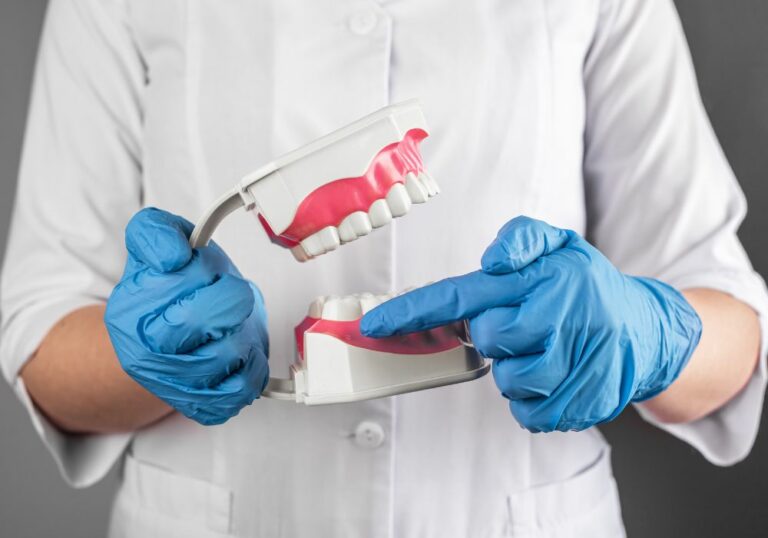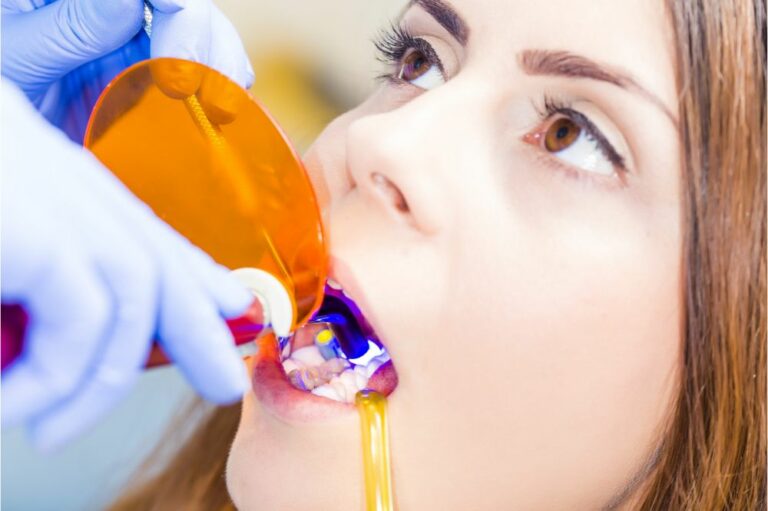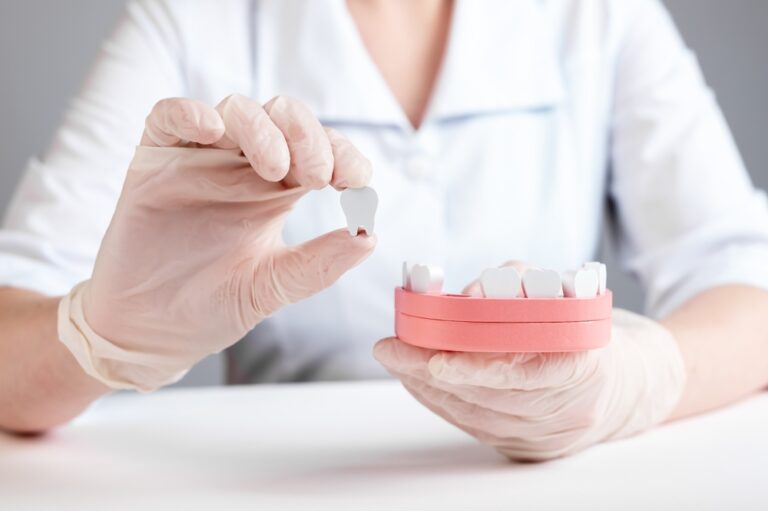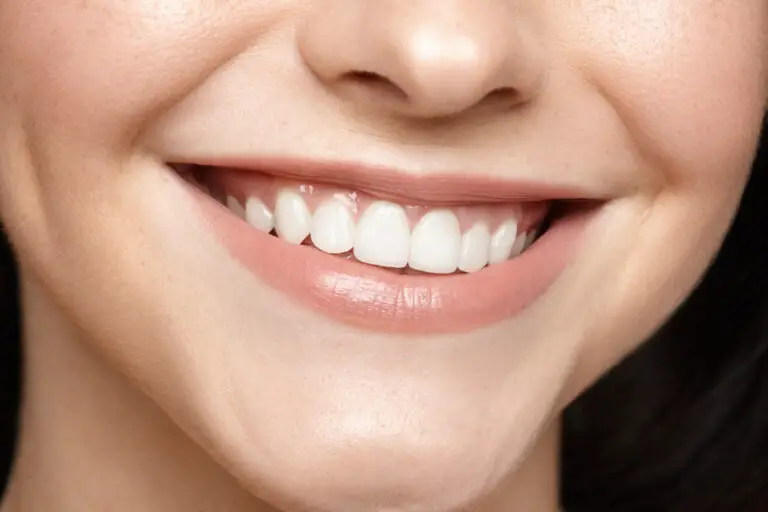Having an unpleasant or bad taste in your mouth after wisdom tooth extraction is very common. This is due to a combination of factors related to the surgery itself, your healing process, and changes in your oral environment. Understanding the causes can help you manage the bad taste until your mouth returns to normal.
Causes of bad tasting saliva after wisdom teeth removal
There are several potential reasons you may notice a bad taste in your mouth after having your wisdom teeth taken out. Let’s explore these in more depth:
Medications and anesthesia
- The anesthetics used during oral surgery, such as lidocaine or bupivacaine, can impart a bitter, metallic, or otherwise unfavorable taste in your mouth which may linger for hours afterwards. This is because trace amounts of the medicine remain in your oral tissues and saliva after the procedure. Staying hydrated by drinking frequent fluids can help dilute and flush it away faster.
- Antibiotics like amoxicillin or clindamycin are often prescribed to prevent infection after wisdom tooth removal. These drugs can leave a somewhat unpleasant, medicinal taste. The bad taste is often most noticeable right after taking a dose, and tends to improve as the medication levels drop between doses. But rinsing your mouth with water or mouthwash can minimize the duration.
- Other medications like corticosteroids or prescription mouth rinses may be recommended for pain management or to promote healing. These can also contribute temporary bad or bitter tastes too.
Blood and bodily fluids
- Bleeding and seepage from the extraction sites is common for 24-48 hours following wisdom tooth surgery. The presence of blood, with its characteristic iron-like taste, can make your saliva itself taste quite unpleasant during the initial healing.
- Other fluids associated with postoperative inflammation, like interstitial fluid, contain proteins and electrolytes that give them a bad taste. Your mouth will produce extra saliva to try to clear away these inflammatory fluids – but this can take on their bad taste too.
- If the wounds have difficulty clotting, they may ooze a bad-tasting serum. Exposure to air causes this serum to take on foul tastes.
Food debris
- Tiny particles of food can get stuck in the extraction sockets or between teeth after eating. As the food breaks down, it may release foul-smelling gases or acids that impart an unpleasant taste.
- It may be difficult to brush and floss well around wisdom tooth removal sites due to discomfort and swelling. Trapped debris breeds bacteria, causing bad breath and saliva taste.
- Attempting to eat too soon after surgery, before the sites have healed over, allows food to be pushed up into the wounds. This decomposing food releases extremely bad tastes into your mouth.
Bacterial imbalance
- After wisdom tooth extraction, the normal oral balance of bacteria gets disrupted, allowing certain foul-tasting anaerobic bacteria to flourish. Studies show increased growth of bacteria like Fusobacterium, Prevotella, and Porphyromonas following extraction.
- Poor oral hygiene after surgery exacerbates this imbalance. Plaque buildup on teeth harbors sulfur compounds like hydrogen sulfide that make your saliva taste rotten.
- Yeasts like Candida albicans thrive on leftover food sugars in your mouth after surgery. Their metabolic byproducts have a bad taste.
Dry mouth
- Having wisdom teeth removed can reduce saliva flow, possibly due to swelling and inflammation of salivary ducts. This dry mouth concentrates any existing mouth bacteria and debris, making them taste more intense.
- Breathing through your mouth worsens dryness. Anxiety over the procedure may also hamper saliva flow. Some medications used pre or post-surgery have dry mouth as a side effect too.
- Dehydration from anesthesia or prescription pain medications can make hyposalivation and the associated bad taste even worse.
Healing wounds
- The wisdom tooth extraction sites themselves harbor considerable fluids, tissue, and debris related to postoperative healing. These healing components directly contact taste receptors and salivary glands, leading to an unpleasant flavor.
- As the wounds attempt to close, they become filled with dead leukocytes, inflammatory exudate, and sloughing epithelial cells which produce foul-smelling compounds.
- Bacteria trying to infiltrate the unhealed wounds contribute to bad tastes too.
Other factors
- If you smoke before or after surgery, tobacco smoke can permeate the wisdom tooth sites and make your saliva taste quite foul. Smoking impairs healing too.
- Certain preexisting health conditions like gum disease, sinus infections, or tonsil stones may contribute to the bad taste by introducing bacteria, fluids, and compounds into your mouth after surgery.
- Your diet before and after wisdom teeth removal plays a role. Pungent, fermented, or spicy foods tend to make the bad taste even worse.
When does the bad taste go away after wisdom teeth removal?

The bad taste in your mouth should steadily improve within 7-14 days after having your wisdom teeth extracted. However, the exact timeline depends on many factors such as:
- How many wisdom teeth were removed
- The extent of trauma to your gum tissue and jaw bone
- How quickly your extraction sites close up and heal
- How effectively you keep your mouth clean after surgery
- Whether you have any complications like infection
- The rate of recovery and regeneration of your tongue and taste buds
Here’s a general timeline of how saliva taste typically progresses during wisdom teeth recovery:
- Days 1-3: The strongest medicinal, metallic, and blood-related tastes as anesthesia wears off and wounds bleed and weep plasma. Frequent salt water rinsing helps cleanse sites.
- Days 3-5: Lingering bad tastes but maybe some initial improvement by day 5 as antibiotics taper off. Still considerable healing fluids and inability to brush well.
- Days 5-7: More noticeable improvement in taste by a week out as basic closure of sites begins. Gum bleeding reduces.
- Days 7-14: Gradual decrease in foul taste over this period as healing advances and oral hygiene improves. By 2 weeks, still some odd tastes but mostly resolved.
- 2 or more weeks: A minority of patients take several weeks or more to regain normal saliva taste if healing is delayed, oral hygiene is poor, or other complications prolong recovery.
See your dentist promptly if the bad taste does not start improving after a week or seems to return or worsen later on. Call them with any signs of possible infection or dry socket.
Tips to manage bad taste after wisdom teeth removal

While waiting for your saliva to regain normal taste after wisdom tooth extraction, you can try these tips to help cope with or minimize the unpleasant taste in your mouth:
Rinse mouth thoroughly
- Gently rinse mouth with warm salt water several times a day, especially after eating, to help flush out food, debris, and bacteria. Mix 1/2 teaspoon salt in 8 oz water.
- Use an antiseptic mouth rinse containing ingredients like chlorhexidine or cetylpyridinium chloride twice daily to freshen breath and reduce bacteria.
- Swish hydrogen peroxide rinse around extraction sites to clean and deodorize wounds. Dilute with equal parts water first.
- Drink plenty of plain water throughout the day to keep your mouth moist and help clear bitter tastes.
Maintain diligent oral hygiene
- Very gently brush teeth, gums, tongue and roof of mouth with a soft brush after meals and before bedtime. Avoid directly disturbing extraction sites.
- Use antimicrobial mouthwash to reach wounded areas your brush cannot. Look for types containing cetylpyridinium chloride or essential oils to kill germs.
- If possible, gently floss teeth not adjacent to surgery sites to dislodge debris.
- Avoid smoking, chewing tobacco, or drinking alcohol which irritate wounds.
Manage dry mouth
- Suck on ice chips throughout the day to stimulate saliva production and thin out mucus.
- Chew xylitol gum to encourage saliva flow. Xylitol helps reduce cavity-causing bacteria too.
- Drink frequent small sips of water and limit caffeine/alcohol which dehydrate mouth.
- Use a cool mist humidifier in your bedroom to prevent dry mouth overnight.
Watch your diet
- Stick to bland, lukewarm soft foods like yogurt, pudding, soups, or scrambled eggs which won’t irritate wounds.
- Avoid very hot, cold, spicy, acidic, crunchy, or sticky foods. These foods also get stuck in sockets.
- Cut food into tiny pieces and chew carefully on the opposite side from extraction sites.
- Swish with water after eating to immediately clear food debris before it rots.
- Limit pungent foods like garlic, onions, coffee, and some spices which worsen taste.
Additional remedies
- Take a chlorophyll supplement which may help freshen breath.
- Consider a charcoal pill or rinse to absorb toxins and gases producing the bad taste.
- Rinse your mouth before and after taking medications to prevent lingering pill taste.
- Use lip balm and nasal saline spray to combat bad breath-causing dry mouth and sinus congestion.
- Suck on mint lozenges if you have a craving for a better taste. Avoid very acidic or sugary varieties.
When to call your dentist
Contact your dentist promptly if:
- The bad taste does not start improving within 5-7 days after wisdom tooth removal.
- An initially improving bad taste returns or worsens later on.
- You have intense pain, swelling, fever or other signs of infection.
- You suspect you may have a dry socket, which requires treatment.
Don’t hesitate to call your dentist with any concerns about worsening or persistent bad saliva taste following wisdom teeth extraction. They can determine if any complications are present requiring additional care.
Why does wisdom teeth removal cause bad tasting saliva?
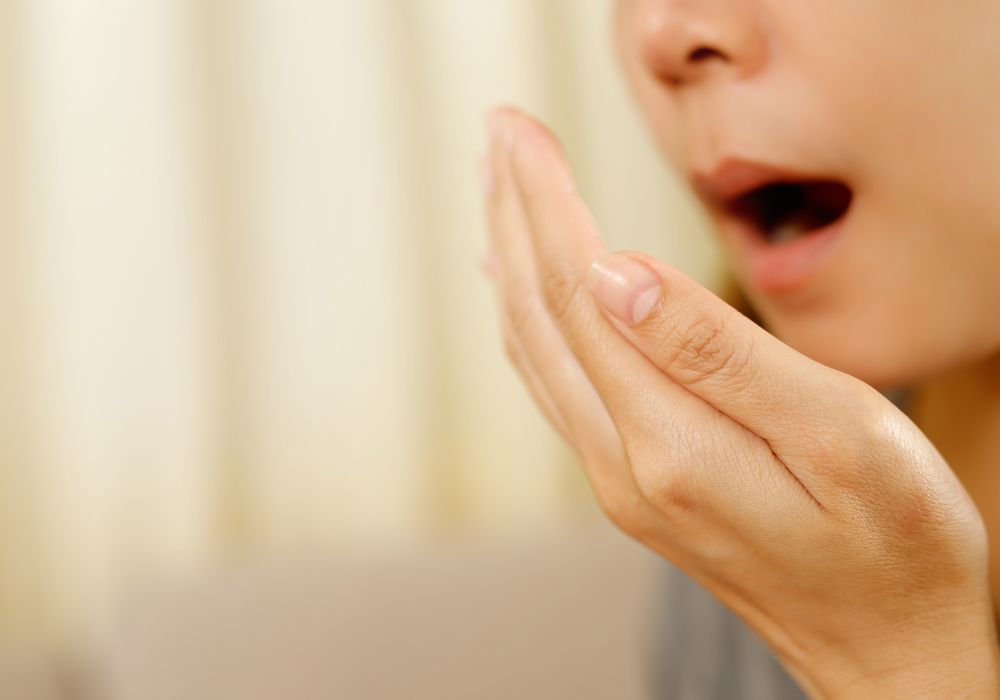
In summary, these are the main reasons that wisdom tooth extraction often causes unpleasant, bad tasting saliva for a period of time afterwards:
- Traces of anesthetic medication used during surgery leave a bitter taste for several hours. Antibiotics and other meds contribute taste too.
- Blood, inflammatory fluids, and tissue debris at the surgical sites release compounds producing bad tastes.
- Food particles frequently get trapped in the open extraction wounds as they heal.
- The normal oral microbiome is disrupted, allowing certain foul bacteria to proliferate unchecked.
- Reduced saliva flow concentrates any existing mouth bacteria and compounds.
- The healing wounds themselves contain smelly tissue exudate, dead cells, and bacteria.
- Poor oral hygiene due to difficulty brushing and flossing near swollen sites.
- Preexisting gum disease or other dental issues impact postsurgical taste.
- Use of tobacco, alcohol, or pungent foods irritates healing sites.
All these factors combine to affect your tongue, taste buds, nasal passages, and salivary components in a way that makes your saliva taste quite foul temporarily. But taking care of your mouth and allowing healing time will help resolve the bad taste.
Frequently Asked Questions
Why does my saliva taste so bad days after wisdom tooth removal?
The bad taste in your saliva can persist for several days after wisdom tooth extraction due to continued presence of blood, bacteria, inflammatory fluids and food debris in the surgical sites and mouth. Healing is still occurring, so the bad taste should steadily improve within the first week.
Is it normal for my saliva to taste rotten after wisdom teeth extraction?
Yes, it is very common to have foul, rotten or metallic tasting saliva for awhile after wisdom tooth removal. This is due to trapped food particles, changes in oral bacteria, and the presence of blood and other fluids related to healing. Proper oral hygiene helps minimize this.
I’m having a terrible taste in my mouth 1 week after wisdom tooth extraction – what should I do?
If you still have a very bad saliva taste 1 week after wisdom teeth removal, contact your dentist. Persistent bad taste after 1 week may indicate complications like infection or dry socket. Your dentist can examine the surgical sites and provide appropriate treatment.
How can I make my saliva taste better after having wisdom teeth removed?
Rinsing your mouth frequently, drinking water, maintaining oral hygiene, avoiding certain foods, chewing gum, and using mouthwash or other oral rinses can all help improve saliva taste following wisdom tooth extraction. The bad taste will gradually go away on its own as healing occurs.
When should the bad taste in my mouth go away after wisdom tooth removal?
Most people find the unpleasant saliva taste starts improving around 5-7 days after having their wisdom teeth out, as antibiotics taper off and initial healing begins. Within 7-14 days the bad taste is much reduced. But it can take some people up to 2 weeks or more for their saliva taste to return to normal.

